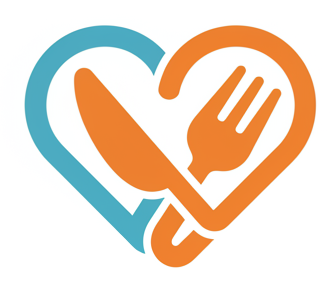Carbohydrates are often misunderstood. Many think they’re bad for a healthy diet. But, are carbs really the enemy? The debate in the health world is ongoing.
In truth, carbs are key to a balanced diet. They can be good or bad, depending on what and how much we eat. Low-carb diets are popular, but knowing carbs’ role in our bodies is crucial.

Not all carbs are the same. Whole grains and fruits have fiber and nutrients. On the other hand, sugary snacks and drinks are empty calories that can harm us. Knowing the difference is vital for a healthy diet.
Key Takeaways
- Carbohydrates are a vital part of a balanced diet
- The type and amount of carbohydrates consumed can impact our health
- Low-carb diets may not be suitable for everyone
- Whole grains and fruits are rich in fiber and nutrients
- Understanding the different types of carbohydrates is essential for making informed decisions about our diets
- The truth about carbs: are they friend or foe? depends on the context and individual needs
Understanding Carbohydrates: The Basics
Carbohydrates are key to our diet, giving us energy. To get the most from carbs, we need to know the basics. They include sugars, starches, and fibers, each with its own role in our health.
Carbs offer many benefits, like energy for daily tasks and helping cells grow. Healthy carbs, like whole grains, fruits, and veggies, are full of nutrients and fiber. They’re great for a balanced diet.
What Are Carbohydrates?
Carbohydrates are one of the three main nutrients, along with protein and fat. They’re made of carbon, hydrogen, and oxygen. Their main job is to give us energy.
Different Types of Carbs
Carbs come in simple and complex types. Simple carbs, like sugars, are quickly digested, raising blood sugar fast. Complex carbs, like starches and fibers, take longer to digest, giving energy over time.
How Your Body Processes Carbs
When we eat carbs, our body turns them into glucose. This glucose goes into the bloodstream. It’s used for energy or stored for later.
Adding healthy carbs to our diet helps keep our energy balanced. It supports our health and lowers disease risk. Knowing how carbs work helps us make better choices and enjoy their benefits.
The Essential Role of Carbs in Your Body
Carbohydrates are key to our bodies, giving energy to our brains, muscles, and organs. They help keep our blood sugar levels stable. This is crucial for our body’s functions. Yet, many think carbs are bad for weight loss and cut them out. This can harm our health, showing the need to know carbs’ role and make smart diet choices.
Some carb myths say all carbs are bad or cutting them out is the best weight loss plan. But, carbs for weight loss are good in moderation as part of a balanced diet. Here are some carb benefits:
- Provide energy for the body
- Help regulate blood sugar levels
- Support healthy digestion
By understanding carbs’ importance and debunking carb myths, we can make better diet choices. This leads to a healthier, more balanced relationship with carbs for weight loss.
| Carbohydrate Type | Benefits |
|---|---|
| Complex Carbohydrates | Provide sustained energy, support healthy digestion |
| Simple Carbohydrates | Quick source of energy, can be beneficial for athletes |
Good Carbs vs. Bad Carbs: Breaking Down the Difference
Not all carbs are the same. Good carbs, like whole grains, fruits, and veggies, are full of fiber and vitamins. They give us lasting energy and help us stay healthy.
Bad carbs, like refined sugars and processed foods, have lots of empty calories. They can cause obesity, diabetes, and heart disease. Knowing the difference helps us make better choices.
Simple Carbohydrates
Simple carbs, or simple sugars, are quickly digested. They include white bread, sugary snacks, and sweet drinks. They give quick energy but can also raise blood sugar too high.
Complex Carbohydrates
Complex carbs take longer to digest, giving us energy over time. Foods like whole grains, legumes, and veggies are full of complex carbs. They’re better for managing carb intake and staying healthy.
Fiber: The Forgotten Carb
Fiber is a complex carb that’s key for a healthy gut and blood sugar. Foods high in fiber, like fruits, veggies, and whole grains, make us feel full. They’re great for weight management and overall health.
The Truth About Carbs: Are They Friend or Foe? Analyzing the Evidence
There’s a lot of mixed info about carbohydrates. To figure out if they’re good or bad, we need to look at the latest studies. This way, we can see how carbohydrates fit into our diets.
Some important findings are:
- Whole, unprocessed foods like fruits, veggies, and whole grains are full of carbohydrates. They give us important nutrients and fiber.
- But, refined and processed foods are often loaded with empty carbohydrates and added sugars. These can harm our health.
- The kind and amount of carbohydrates we eat really matters. It affects blood sugar, weight, and overall health.
To make smart choices about carbohydrate intake, we need to know the different types. This helps us tell fact from fiction and find out if carbs are good or bad.

For a healthy relationship with carbohydrates, balance and variety are key. Eating whole, nutrient-rich foods and watching portion sizes helps. This way, we can enjoy carbs’ benefits without the risks.
| Type of Carbohydrate | Examples | Health Effects |
|---|---|---|
| Whole, unprocessed | Fruits, vegetables, whole grains | Essential nutrients and fiber, supports healthy blood sugar control and weight management |
| Refined and processed | White bread, sugary snacks, sweetened beverages | Empty calories, added sugars, negative impact on blood sugar control and weight management |
Common Myths About Carbohydrates Debunked
Carbohydrates have been a topic of discussion for many years. Many myths and misconceptions surround their impact on our health. It’s important to separate fact from fiction and understand the truth about carbs and health. In this section, we will explore common carb myths and provide evidence-based information to help readers make informed choices.
Some common myths about carbohydrates include the idea that all carbs make you fat. Others believe carb-free diets are the healthiest, or that athletes should avoid carbs. However, research has shown these myths are not entirely true. Carbs are essential for a balanced diet and provide energy for the body. It’s important to focus on whole, unprocessed foods like fruits, vegetables, and whole grains, rather than processed and sugary snacks.
- Myth: All carbs are created equal. Reality: There are different types of carbs, including simple and complex carbs, and each has a different impact on the body.
- Myth: Low-carb diets are the best for weight loss. Reality: While low-carb diets may lead to short-term weight loss, they are not sustainable in the long term and may have negative impacts on overall health.
- Myth: Athletes don’t need carbs. Reality: Carbs are an essential source of energy for athletes, and they play a crucial role in supporting athletic performance.
In conclusion, it’s essential to understand the truth about carb myths and carbs and health. By focusing on whole, unprocessed foods and staying informed about the latest research and studies, readers can make informed choices about their diet and lifestyle.
| Myth | Reality |
|---|---|
| All carbs make you fat | Not all carbs are created equal, and whole, unprocessed carbs can be part of a healthy diet |
| Carb-free diets are the healthiest | Carb-free diets can be detrimental to overall health and are not sustainable in the long term |
| Athletes should avoid carbs | Carbs are an essential source of energy for athletes and support athletic performance |
How Carbs Affect Your Weight Management Goals
Carbohydrates are key in managing weight, and knowing their impact is vital. For carbs for weight loss, it’s important to focus on the type and amount. Low-carb diets are popular, but do they work for everyone?
A diet with the right carbs can aid in weight loss. Here are some tips:
- Eat complex carbs like whole grains, fruits, and veggies. They’re full of fiber and nutrients.
- Watch out for simple carbs like sugary drinks and refined grains.
- Pay attention to portion sizes to avoid eating too many carbs.
Low-carb diets might not fit everyone, especially active people or those with dietary limits. A balanced diet with various food groups is usually best for lasting weight loss.

In summary, carbs are crucial for weight management. By choosing wisely and understanding low-carb diets, you can find a personalized way to reach your weight loss goals.
| Diet Type | Carb Intake | Weight Loss Effectiveness |
|---|---|---|
| Low-Carb Diet | 50-150g per day | Effective for short-term weight loss, but may be difficult to maintain long-term |
| Balanced Diet | 200-250g per day | Supports sustainable weight loss and overall health |
The Right Amount of Carbs: Finding Your Balance
To stay healthy, knowing how much carb you need is key. It’s important to choose the right carbs for your body. Finding the right carb balance can be tough, but with the right help, you can make good choices.
When thinking about carbs, consider your lifestyle and diet. You need to figure out how many carbs you should eat each day. This depends on how active you are and any special diet needs you might have.
CalculatingBloc Your Carb Needs
To find out how many carbs you need, look at your age, weight, and how active you are. Most people should eat 45-65% of their daily calories as carbs. You can use online tools or talk to a doctor to figure out what’s best for you.
Adjusting for Activity Level
If you’re very active, you might need more carbs. This helps fuel your body and helps muscles recover. You might need to eat more carbs before and after working out.
Special Dietary Considerations
If you have diabetes or can’t eat gluten, you need to think about carbs differently. It’s important to work with a doctor to make a plan that fits your needs. This ensures you get the right carbs for your body.
Smart Carb Choices for Optimal Health
Choosing the right carbs is key for good health. It’s important to know the difference between good vs bad carbs. Foods like whole grains, fruits, and veggies are full of fiber, vitamins, and minerals.
Eating a variety of whole foods is essential. Here are some tips for picking the right carbs:
- Choose whole grains over refined or processed grains
- Incorporate a variety of colorful fruits and vegetables into your diet
- Limit your intake of added sugars and saturated fats
By picking the right carbs, you can enjoy their benefits while avoiding the downsides of bad carbs. A balanced diet with whole foods helps you stay healthy, maintain a good weight, and lower disease risks.
For a healthy diet, focus on balance and variety. Opt for whole, unprocessed foods and cut down on added sugars and saturated fats. This way, you support your health with smart carb choices.
| Food | Carb Content | Benefits |
|---|---|---|
| Whole Wheat Bread | 30g | Rich in fiber and vitamins |
| Brown Rice | 45g | Good source of manganese and selenium |
| Apples | 25g | High in fiber and antioxidants |
When to Eat Carbs: Timing Matters
Carbohydrates are key in our diet, and when we eat them matters a lot. Knowing when to eat carbs is vital for good health and weight loss. Many carb myths exist, but it’s important to know what’s true.
Pre-Workout Carbs
Eating carbs before a workout gives you energy and boosts performance. Whole grains and fruits are great for this. They give you energy slowly, helping you stay strong during your workout.
Post-Workout Carbs
After a workout, carbs help refill your energy and aid in muscle recovery. Sports drinks and bananas are perfect because they’re quickly used by your body. They’re great for snacks after your workout.
Daily Carb Distribution
For a balanced diet, spread out carbs throughout the day. Eat complex carbs in your meals and save simple carbs for before and after workouts. This way, you keep your energy up and support your health, debunking carb myths and helping with carbs for weight loss.
Conclusion: Making Peace with Carbohydrates
The truth about carbs is they’re not all good or bad. It’s about knowing how carbohydrates fit into our diet and making smart choices. Some carbs are good for us, while too much of others can be bad.
It’s best to eat whole, complex carbohydrates more often. Avoid too many refined and processed carbs. This balance helps you enjoy carbs’ benefits and stay healthy. Small, steady changes can greatly improve how you feel and do things.
So, accept carbs and learn to choose wisely for your health. Your body and mind will be grateful.
Disclaimer: This article is for informational purposes only and does not constitute medical advice. Always consult a healthcare professional before starting a new exercise or wellness routine.
FAQ
What are carbohydrates?
Carbohydrates are one of the three main nutrients, along with protein and fat. They give the body energy and help it function properly.
What are the different types of carbohydrates?
Carbohydrates come in two types: simple and complex. Simple carbs, like added sugars, are quickly digested and can raise blood sugar. Complex carbs, like whole grains, are digested slower and give longer-lasting energy.
How do carbohydrates affect weight management?
Carbs play a big role in weight management. While some diets cut out carbs for weight loss, it’s not always necessary. The goal is to eat the right carbs, like whole grains, and balance them with calories.
Are all carbs bad for you?
No, not all carbs are bad. Healthy carbs, like whole grains and fruits, are full of fiber and vitamins. They give energy and support health. Unhealthy carbs, like refined sugars, are empty calories and can harm health.
How much carbs should I be eating?
The right carb intake varies based on activity level, age, and health goals. The Dietary Guidelines suggest carbs should be 45-65% of daily calories. But, it’s key to find what works best for you.
When is the best time to eat carbs?
When you eat carbs matters. Eating them before a workout gives energy for exercise. After a workout, they help refill glycogen stores. Spreading carbs throughout the day helps keep blood sugar stable.
Are low-carb diets the healthiest option?
Low-carb diets can help with weight loss and health issues. But, cutting out carbs completely can lead to nutrient deficiencies. It’s better to focus on eating the right carbs in the right amounts for your needs.






